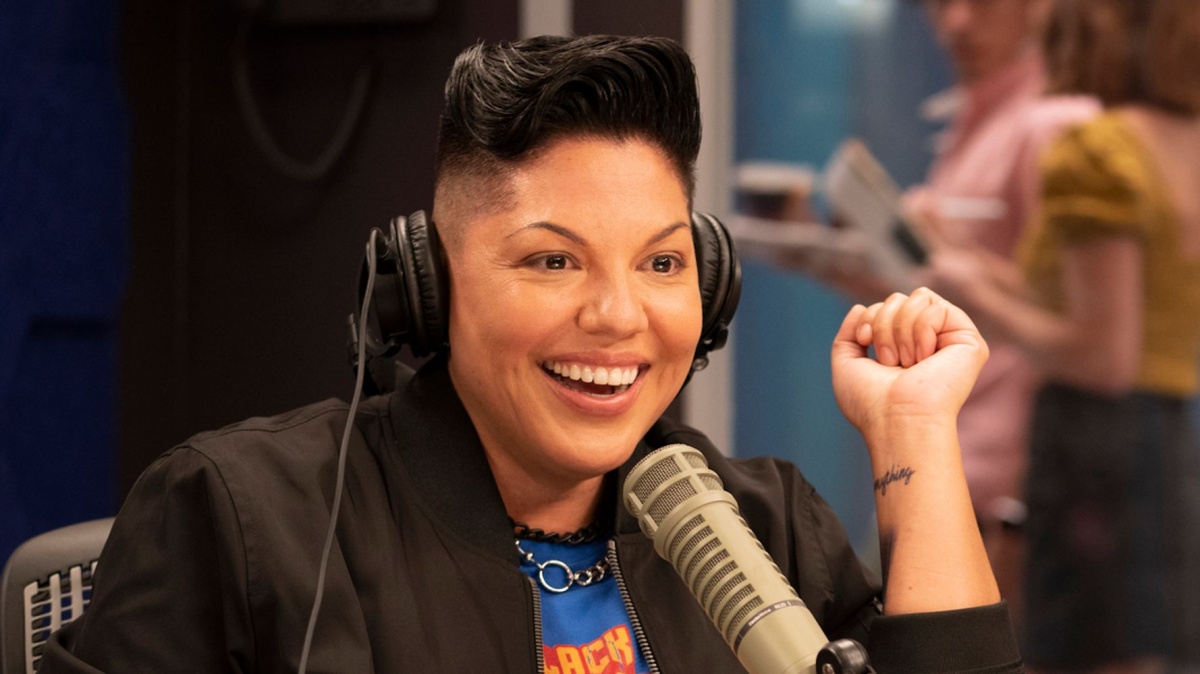‘And Just Like That…’ Team’s Latest Response to Che Diaz Criticism Is Just Insulting

Sara Ramírez is on the cover of Variety, and the article talks about the backlash concerning her character, Che Diaz, on And Just Like That… and it is pretty shitty, to be perfectly honest. Ramírez told Variety,
When those detractors included LGBTQ viewers, the idea of Che exposed that perhaps those people simply wanted more palatable representation: more white, and more cisgender. For gay Che haters, the call was coming from inside the house.
There was also a quote from Cynthia Nixon, who starred as Miranda on the original series and the revival (where she left her onscreen husband for Che), which is also very exhausting:
Nixon — who says she suggested Ramírez to King after admiring their work for years — is confused about the seismic reaction to the character. “I don’t know what to make of it,” she says. “I mean, I think you’ve got a lot of marriage-police people out there.” Nixon also wonders whether the explosion was because the Miranda-Che relationship is so different from TV’s usual “girl-on-girl action that people across the board think is really sexy.”
“A person like Sara is really threatening and frightening to people,” Nixon says.
I have great empathy for Ramírez because playing a character people have come to near-universally dislike is frustrating, especially on social media. The character was meant to be a major representation moment, and the response has not been great. I get that. All that being said. The idea that BIPOC queer Sex and the City fans, like myself and fellow TMS writer Briana Lawrence, are upset because we wanted the character to be white and cis is insulting.
It’s not only insulting to our identities but our intelligence. Sex and the City, as a franchise, has been white, cis, and problematic forever. The series trafficked in biphobia, transphobia, and stereotypes until the very end. The bringing in of all these Black and Brown characters (while still having white showrunners and no nonbinary writers on staff) was an incredibly late course correction, and a lazy one at that.
Many BIPOC writers have been very outspoken about appreciating the actors playing these roles while being disappointed in the shallowness of it—all while acknowledging that it is still important that Che exists in this series.
With the Miranda/Che storyline specifically, the complaints have been the rushed nature of it, the ableism concerning Steve, and just the bad writing. Steve and Miranda have been an item since season two of the series, and you are breaking them up in the laziest way possible to run through a queer storyline with Miranda (when we all remember how vehemently they tried to avoid us seeing Miranda as queer for years).
The biggest problem is that, if this is the hyper simplistic way that the creators are viewing the response to Che, then that does not bode well for the show to improve in the second season. They aren’t wrong about one thing: The call is coming from inside the house. It is the largely out-of-touch writers’ room that isn’t as diverse as it should be, trying to ham-fist several Black and Brown characters into the lives of a once lily-white friend group that mocked Samantha for being bisexual.
(via Variety, featured image: HBO MAX)
Have a tip we should know? tips@themarysue.com